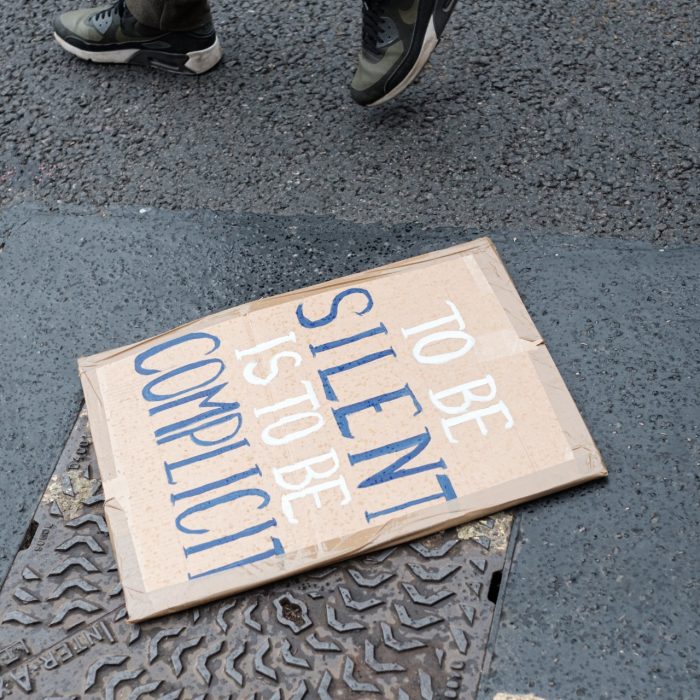Antiracism Collective
We take action against racism.

The problem
20% of Australians experience racial discrimination in the form of hate speech, with around 5% attacked because of their race. Some groups, including Aboriginal and Torres Strait Islander people, migrants and refugees, experience racism at higher rates. Greater awareness of racism and the ways we can address it will enable a more inclusive and equitable society.
Our approach
The Antiracism Collective, established in 2021, fosters action against racism in all its forms. The Innovation Hub worked with the Collective in its infancy to design and embed its collaborative ecosystem.
Together, they mapped how the Collective would conduct research, engagement and advocacy across its multidisciplinary community of academic and professional staff and higher degree research students from UNSW Arts, Design & Architecture.
The Collective examines how we understand racism and racialisation, and the university’s role in tackling this within and beyond the university. It drives diverse initiatives to embed real-world change.
It engages with race-related research and scholarship, identifies and develops curriculum opportunities, addresses institutional issues of racism for staff and students of colour, and conducts outreach and activism to promote racial equality, tackle racism/racialisation and promote diversity and inclusion.
The outcomes
Since its inception, the Antiracism Collective has produced a series of public resources that highlight important research on racism and antiracist theory and practice. It has hosted seminars, informal lunchtime and roundtable discussions on race-related issues with scholars and scholar-activists.
These have included: the implications of the International Holocaust Remembrance Alliance definition of antisemitism on antiracism, activism, academic work, and campus life; the increase in attacks on critical race theory and contemporary culture wars; and how abolishing the violent structures of the colonial carceral state contributes to antiracism scholarship.
It has also coordinated a series of dialogues on First Nations Children’s Books. In 2022, the ‘book club’ discussed books by Adam Goodes & Ellie Laing, Amy McQuire, Archie Roach, Briggs, and Thomas Mayor. It is currently developing a series of workshops and a discussion guide for parents.
The Collective is also identifying and developing a suite of courses for an undergraduate major in Race and Culture Studies for 2024 and advocating for greater recognition/representation of students from refugee and asylum seeker backgrounds in university policies and services to better support these (aspiring) students.
Project partners
- UNSW’s Forced Migration Research Network
- UNSW ADA Equity, Diversity and Inclusion Committee
- UNSW ADA Cultural Reflexivity Initiative
Work with us
The UNSW Innovation Hub tackles diverse problem-solving projects, varying in size, complexity and subject matter. We specialise in complex challenges that require collaboration, a design-led approach, and that can’t be addressed by a single discipline.
If you have a project proposal or potential partnership that you would like to discuss, please get in touch.
- Overview
- News
- Our team
- References

